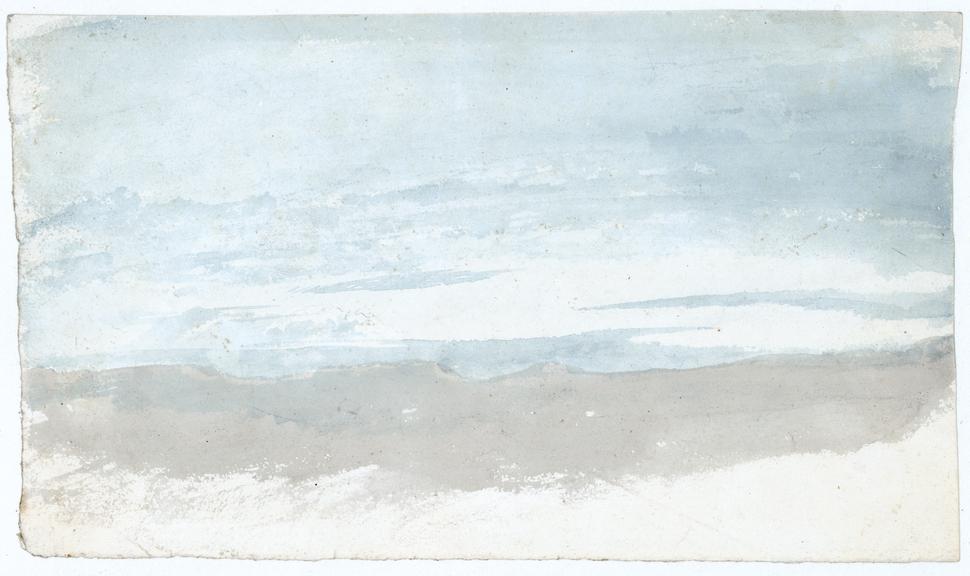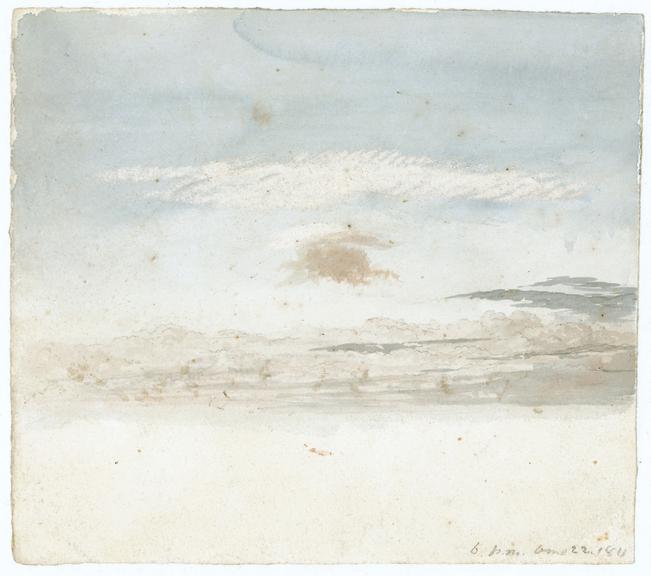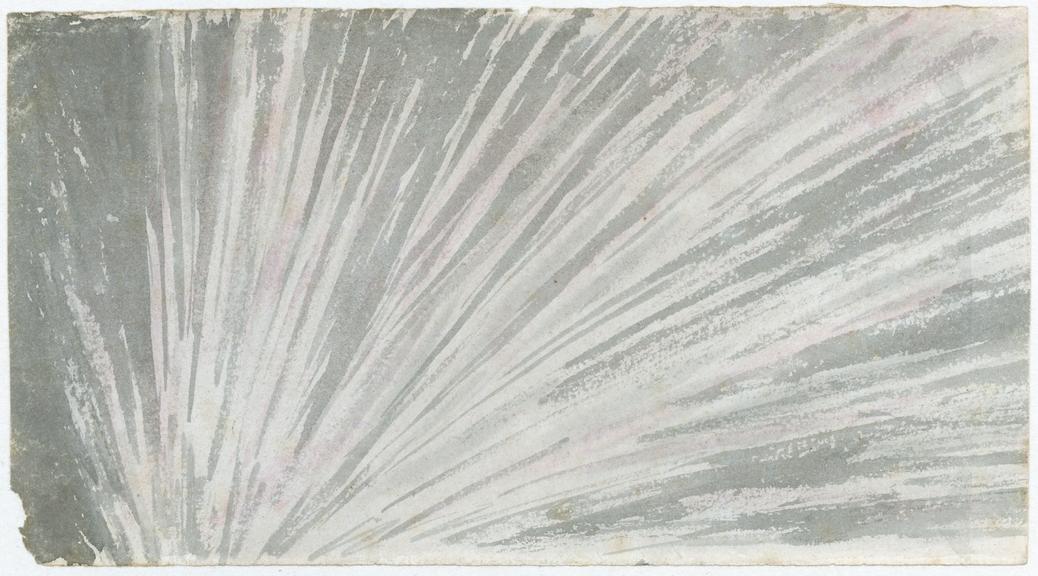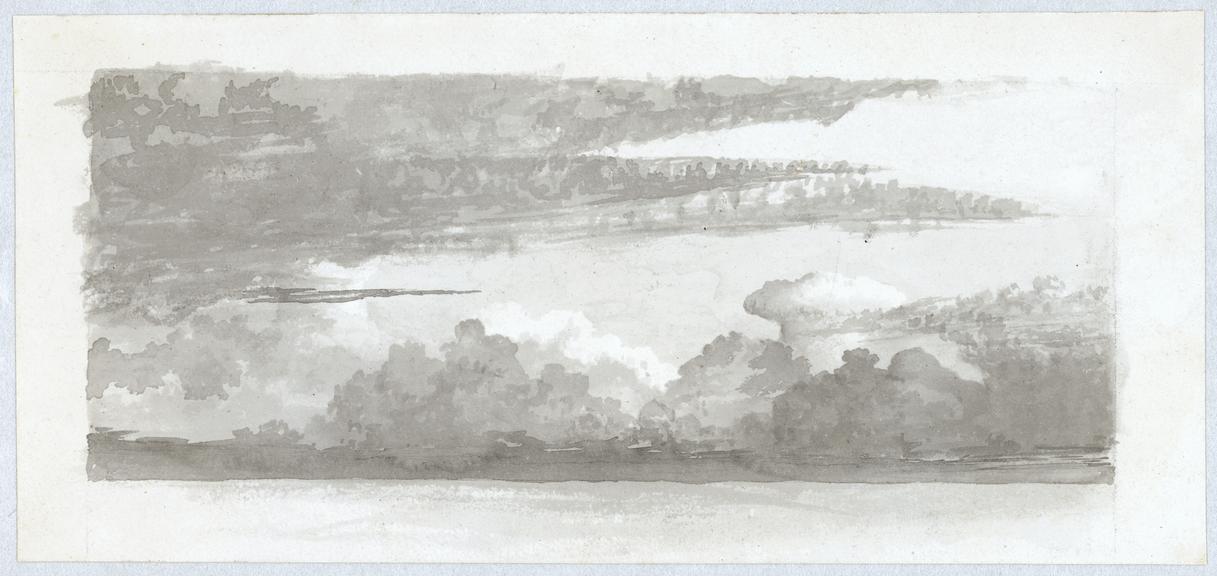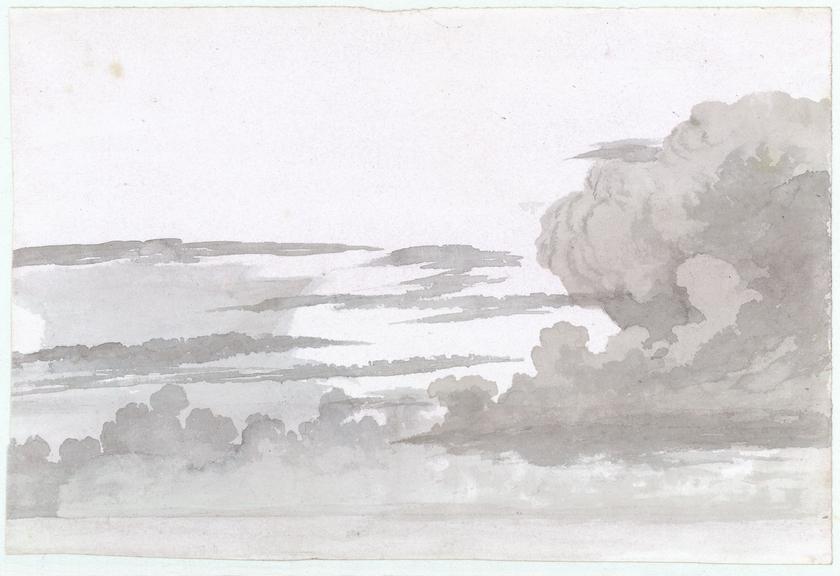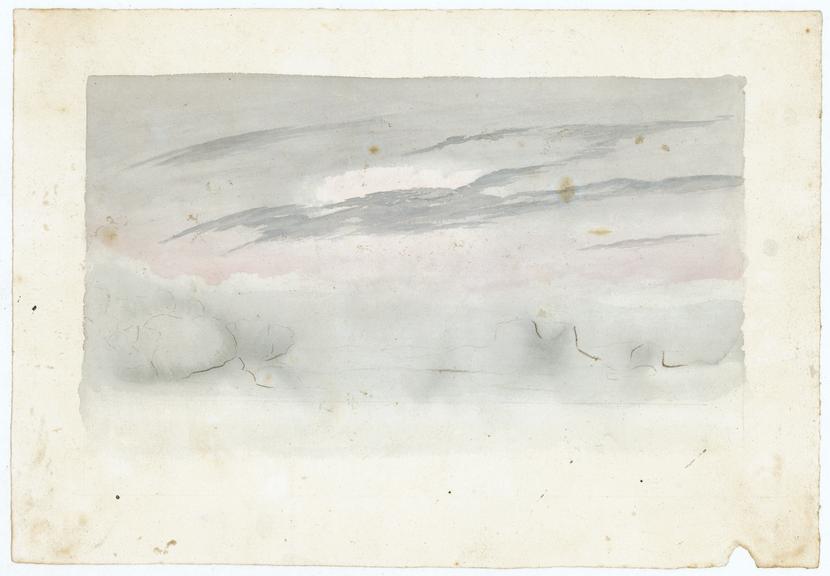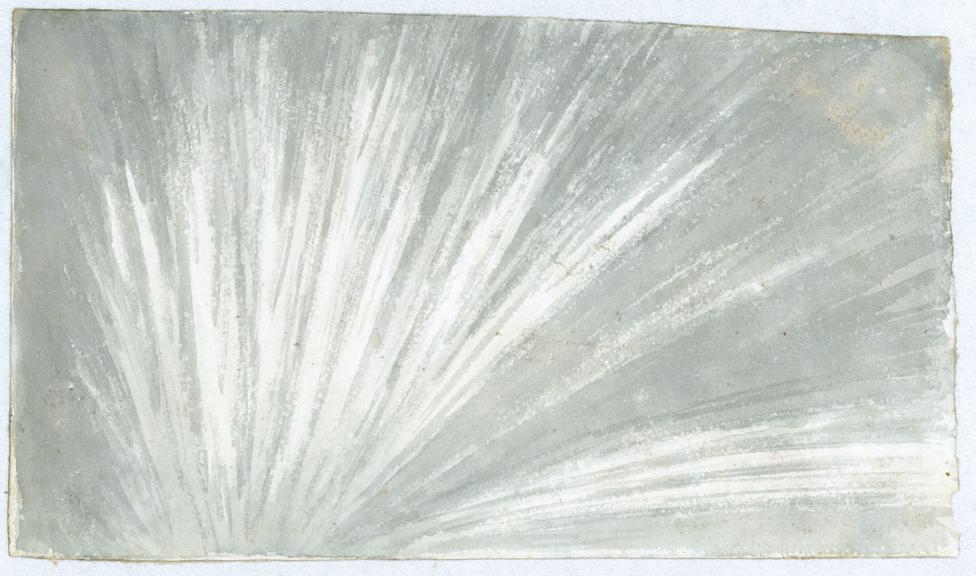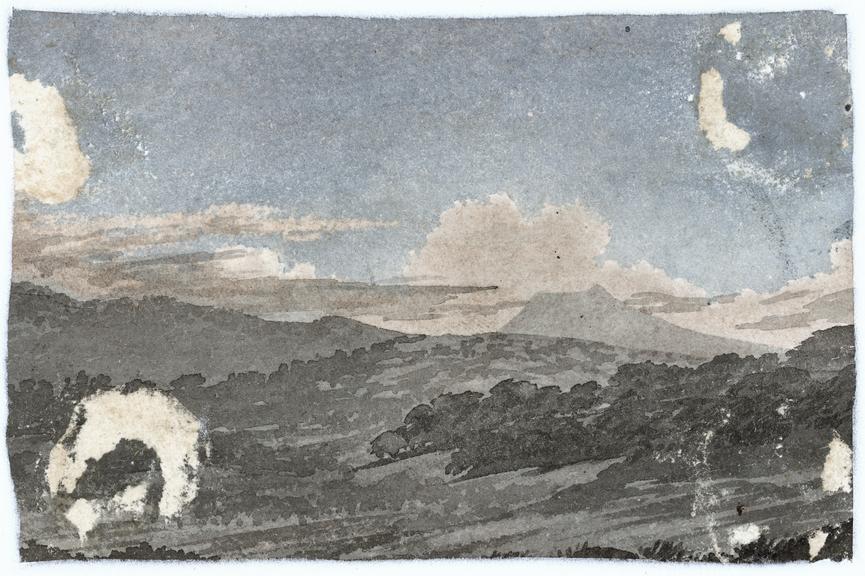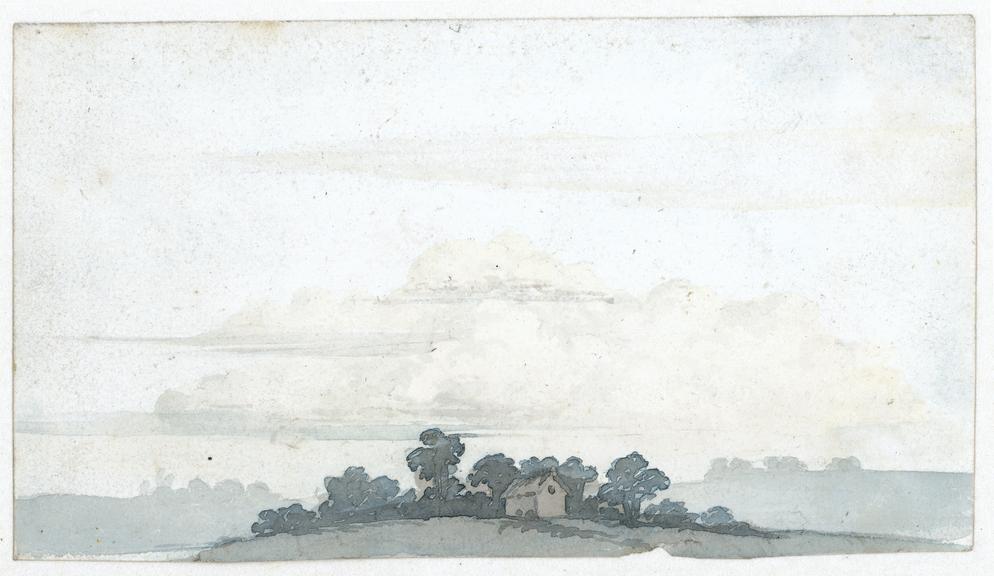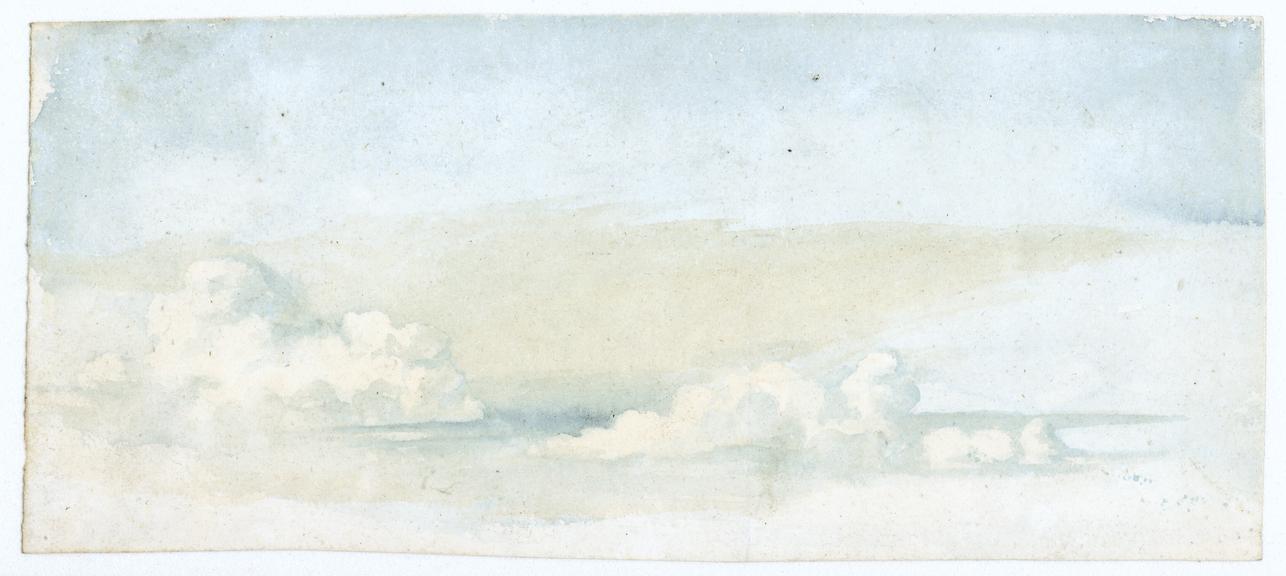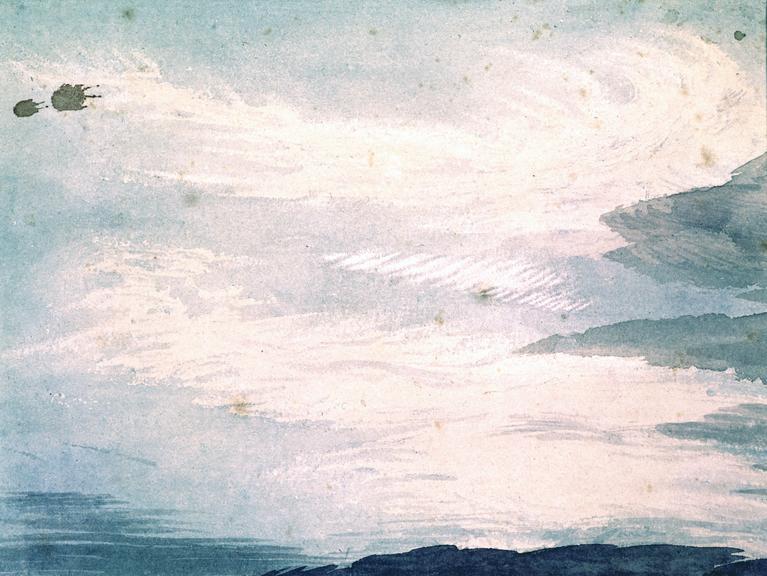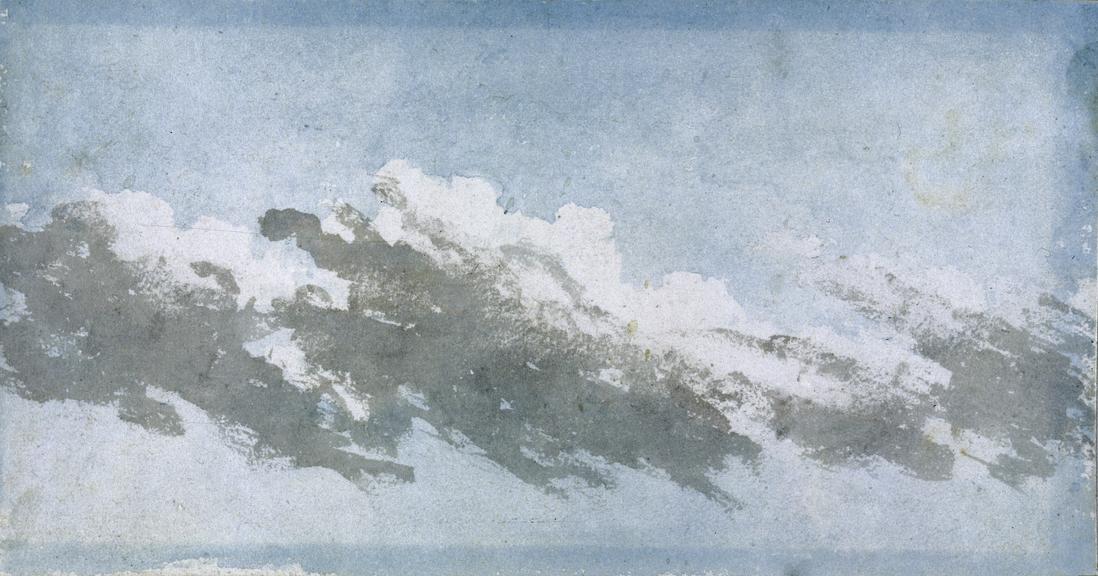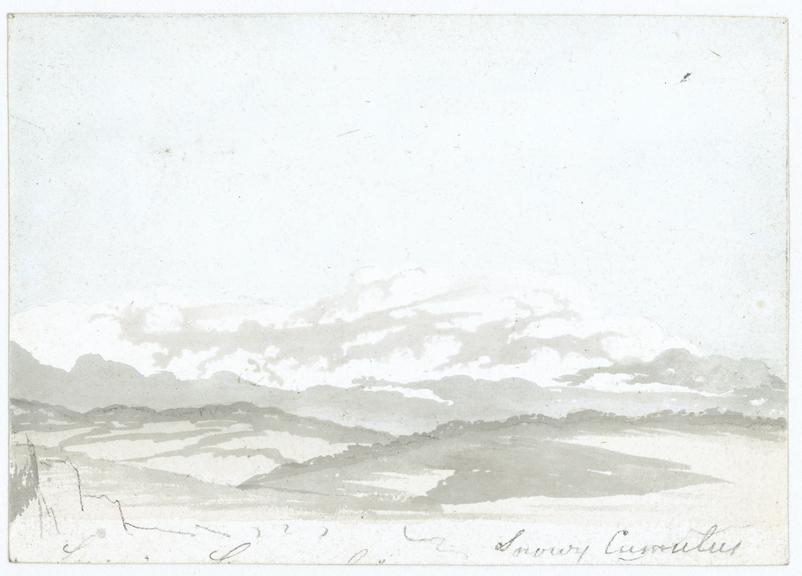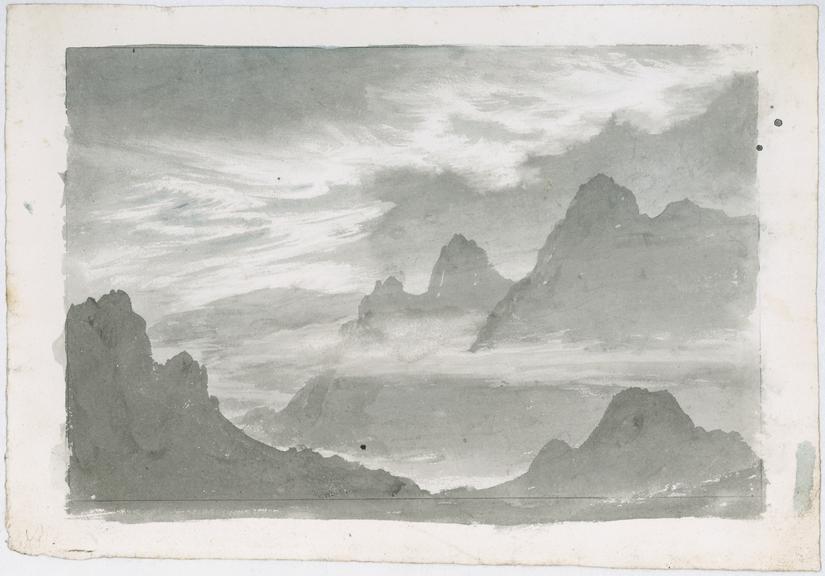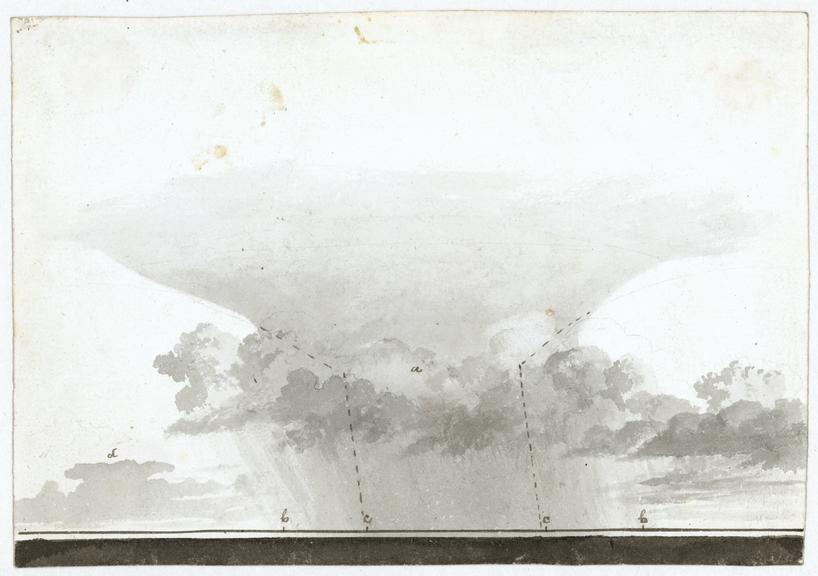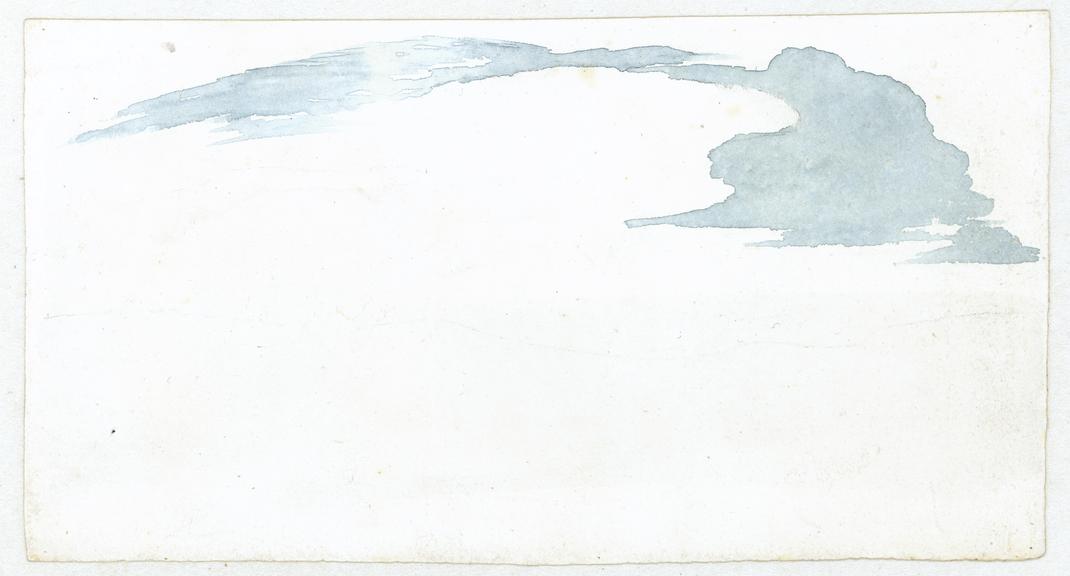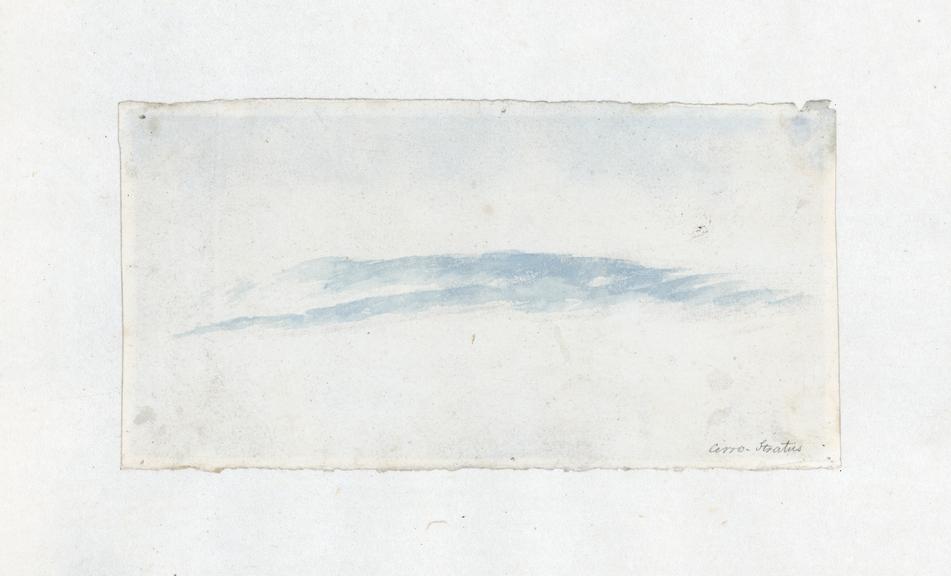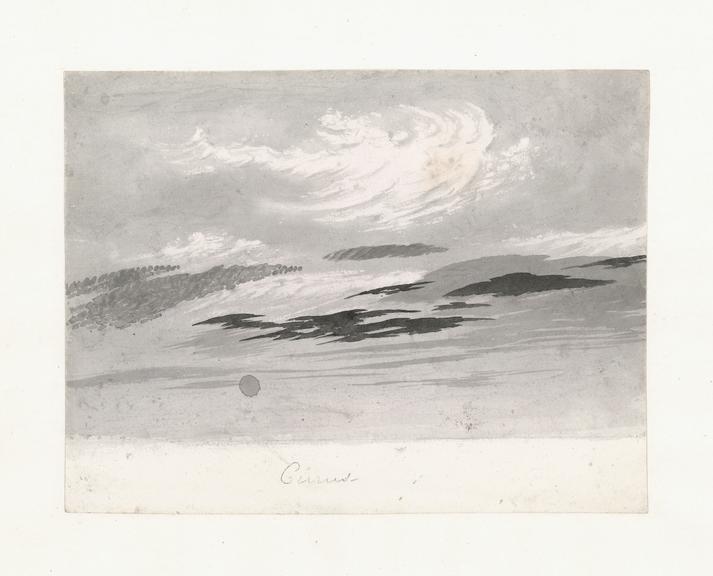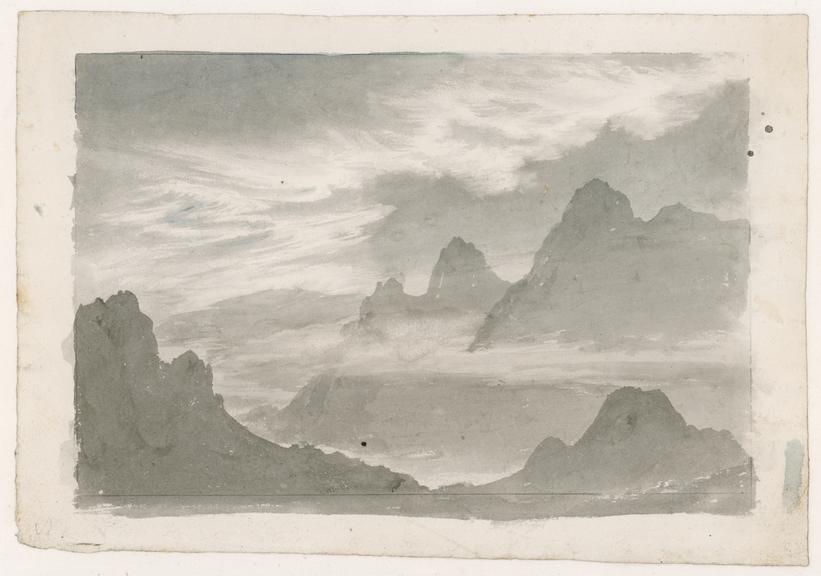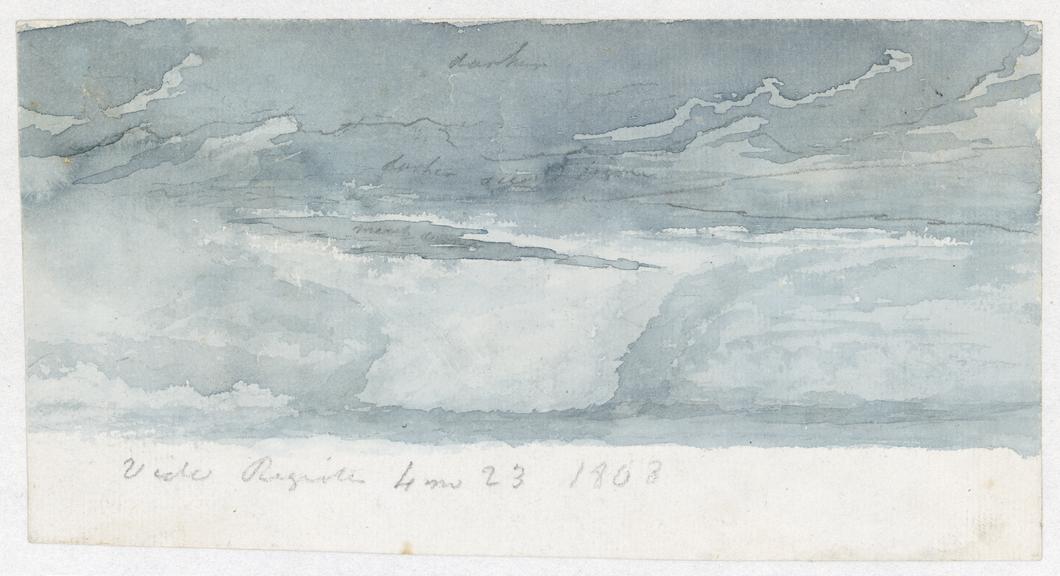
Cloud study of light cirro-cumulus beneath cirrus
1803-1811



























































A collection of 51 drawings with 1 engraving, studies of clouds c1803-1811, by the meteorologist Luke Howard FRS (1772-1864). Mainly pencil and wash, 19x28cm. or smaller with conservation paper backs or edging. - Collection assembled in 1923 by Howard's granddaughter Mariabella Fry from 'loose scraps among family papers, without note or comment' and subsequently deposited by the Royal Meteorological Society. - Some sketches are inscribed, only two dated. Showing observations of cloud formations while adopting the nomenclature presented in Howard's paper 'On the modifications of clouds' 1803. Six drawings have highly finished landscapes probably by an assistant, Silvanus Bevan. Some are originals for engravings of cloud formations in editions of the classification promulgated in Philosophical Magazine 1803, Rees's Cyclopedia and other, later publications. For specific details of each drawing please see 1981-862/1 to 1981-862/52
Chemist and amateur meterologist Luke Howard captured the different shapes and colours of clouds in these delicate pencil and watercolour sketches. Along with observations of height and movement, he managed the unimaginable and classified the clouds. Howard identified three basic families of clouds, using Latin names: cirrus ('curl of hair'), stratus ('layer') and cumulus ('heap' or 'pile'). He then added a further four subcategories - cirro-cumulus, cirro-stratus (nimbus) to explain the way clouds could swiftly change in appearance or join with others in the sky. Howard collaborated with the artist Edward Kennion to produce more picturesque cloud sketches for the third edition of his 'Essay on the Modification of Clouds' published in Alexander Tilloch’s 'Philosophical Magazine' in 1865.

1803-1811
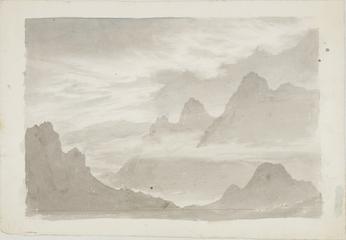
1807
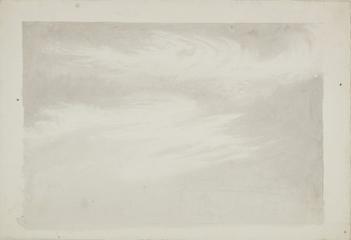
1803-1811

1803-1811
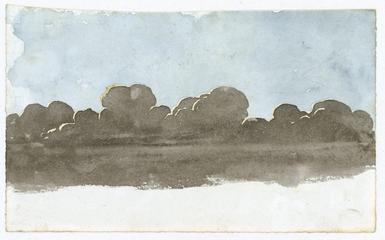
1803-1811
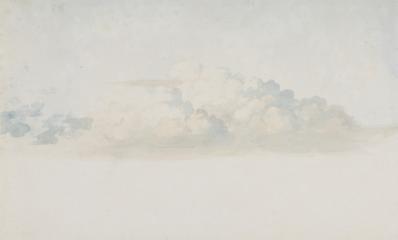
1803-1811
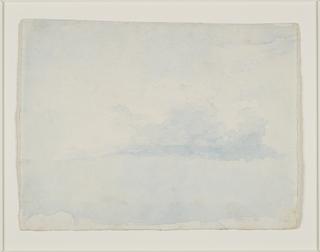
1803-1811
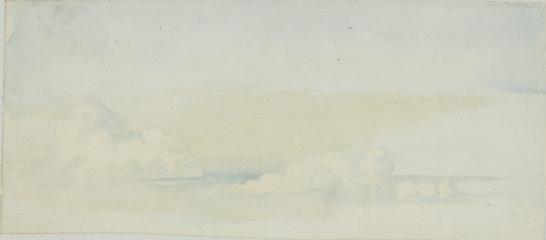
1803-1811
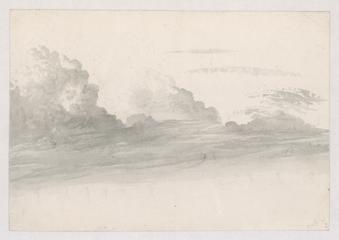
1803-1811
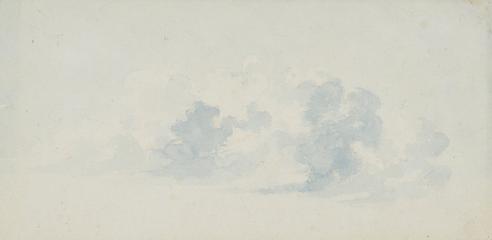
1803-1811
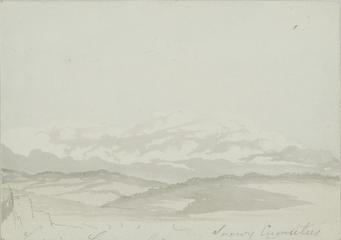
1803-1811
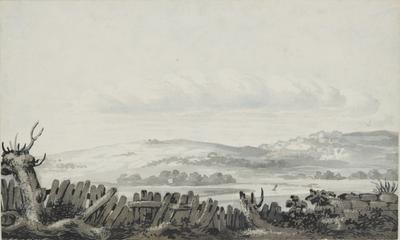
1803-1811
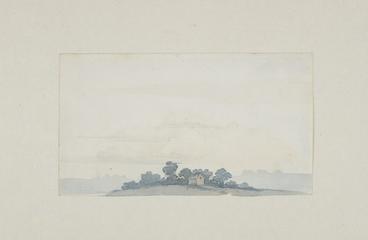
1803-1811
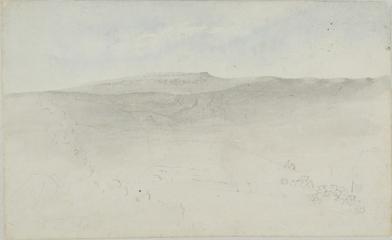
circa 1807

1803-1811

1803-1811

1803
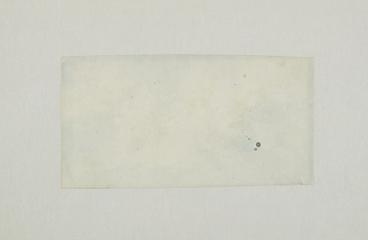
1803-1811

1803-1811
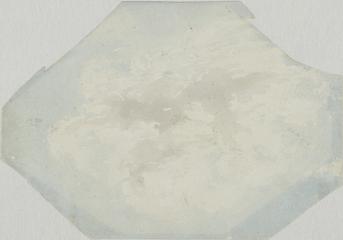
1803-1811
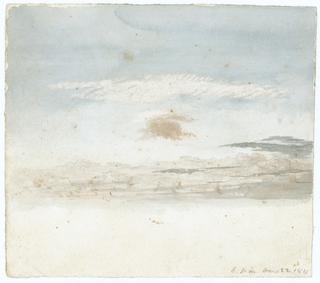
1811
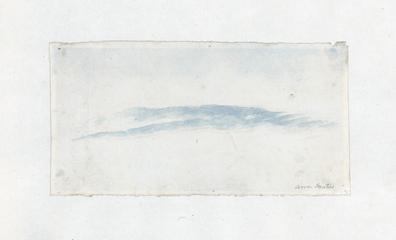
1803-1811

1803-1811
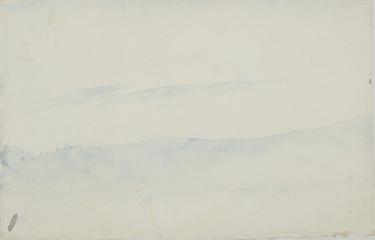
1803-1811
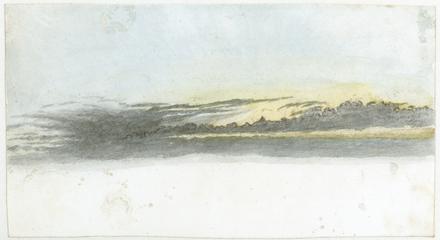
1803-1811



